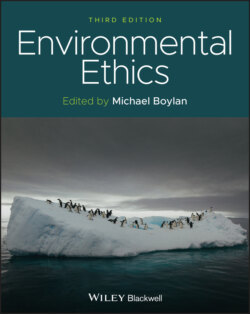Читать книгу Environmental Ethics - Группа авторов - Страница 39
Pollution
ОглавлениеIn a reverse way, the tragedy of the commons reappears in problems of pollution. Here it is not a question of taking something out of the commons, but of putting something in—sewage, or chemical, radioactive, and heat wastes into water; noxious and dangerous fumes into the air; and distracting and unpleasant advertising signs into the line of sight. The calculations of utility are much the same as before. The rational man finds that his share of the cost of the wastes he discharges into the commons is less than the cost of purifying his wastes before releasing them. Since this is true for everyone, we are locked into a system of “fouling our own nest,” so long as we behave only as independent, rational free-enterprisers.
The tragedy of the commons as a food basket is averted by private property, or something formally like it. But the air and waters surrounding us cannot readily be fenced, and so the tragedy of the commons as a cesspool must be prevented by different means, by coercive laws or taxing devices that make it cheaper for the polluter to treat his pollutants than to discharge them untreated. We have not progressed as far with the solution of this problem as we have with the first. Indeed, our particular concept of private property, which deters us from exhausting the positive resources of the earth, favors pollution. The owner of a factory on the bank of a stream, whose property extends to the middle of the stream, often has difficulty seeing why it is not his natural right to muddy the waters flowing past his door. The law, always behind the times, requires elaborate stitching and fitting to adapt it to this newly perceived aspect of the commons.
The pollution problem is a consequence of population. It did not much matter how a lonely American frontiersman disposed of his waste. “Flowing water purifies itself every 10 miles,” my grandfather used to say, and the myth was near enough to the truth when he was a boy, for there were not too many people. But as population became denser, the natural chemical and biological recycling processes became overloaded, calling for a redefinition of property rights.
